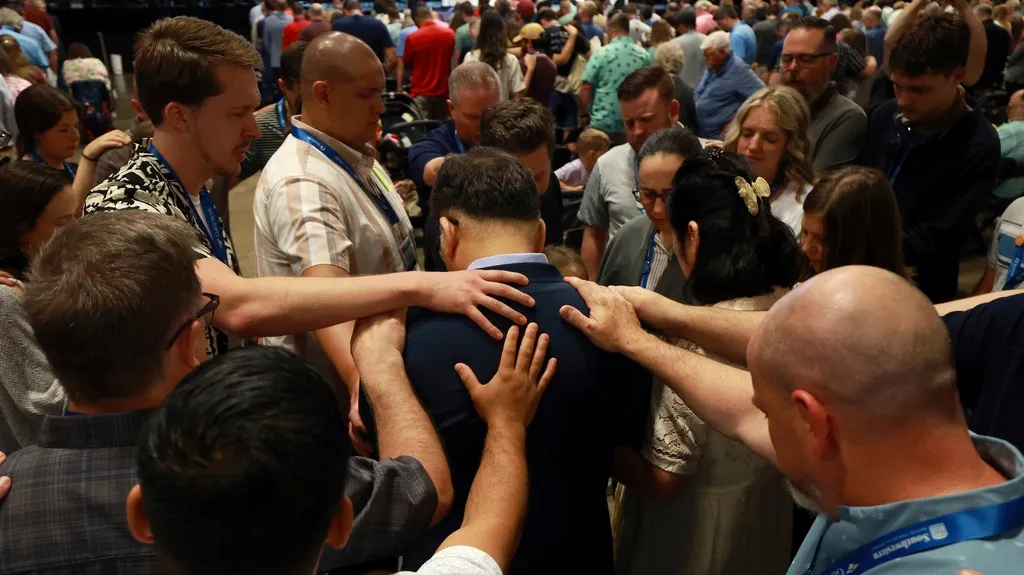July 29, 2013
Lawmakers to Revive Gay Marriage Debate in Neb.
Jason St. Amand READ TIME: 3 MIN.
Nebraska lawmakers will revive a gay marriage debate later this year, with a hearing that could lead to a proposed ballot measure on the issue.
The Legislature's Judiciary Committee will convene on Oct. 4 to review Nebraska's constitutional amendment that defines marriage as the union of a man and a woman.
The committee chairman, Sen. Brad Ashford of Omaha, said he wants a public debate on the issue in the wake of last month's U.S. Supreme Court decisions, which struck down part of the federal Defense of Marriage Act. The ruling allowed married same-sex couples to qualify for federal benefits, but had no impact on Nebraska's amendment.
The hearing will focus on the restrictions in place for same-sex couples in Nebraska that want to marry, or have done so in other states. Ashford, who supports same-sex marriage, said he also wants to explore a possible "middle ground" of civil unions, which he believes would receive stronger support from voters.
Nebraska doesn't recognize civil unions, domestic partnerships or any other relationships between same-sex couples. Ashford said he would prefer full marriage rights for gay and lesbian couples, but he doubts voters would allow it.
"Would civil unions be acceptable? I think they would be," Ashford said. "Would gay marriage be acceptable? I don't think so."
Supporters of the Nebraska amendment pointed to the 70 percent support it received when voters approved it in 2000. They argued the law preserves traditional marriages.
"There's no shift in my district," said Sen. Mark Christensen, of Imperial, a Judiciary Committee member who represents a large part of a southwest and south-central Nebraska. "People still believe marriage is between a man and a woman, and no other way. I'm not sure there's such a big shift in the nation, either."
The Supreme Court justices issued two 5-4 rulings in June. One wiped away part of the federal anti-gay marriage law that has kept legally married same-sex couples from receiving tax, health and pension benefits. The other was a technical ruling that said nothing about same-sex marriage, but left in place a trial court's declaration that California's Proposition 8 is unconstitutional, making same-sex marriage legal in the state.
Same-sex marriage is legal, or soon will be, in 13 states and the District of Columbia, representing about 30 percent of the U.S. population.
After the Supreme Court decisions were released, some gay marriage supporters in Nebraska said they were considering a statewide petition or a court challenge to overturn the state constitutional amendment.
Social conservatives have noted that both rulings were narrowly drawn. They also argued that Nebraska's constitutional amendment has already survived a federal court challenge. In 2003, the American Civil Liberties Union and three other groups challenged the amendment in federal court. A federal judge in Nebraska ruled in their favor, but the decision was overturned by a three-judge panel from the U.S. 8th Circuit Court of Appeals.
Constitutional amendments require statewide voter approval. They have to be placed on the ballot by a three-fifths majority in the Legislature, or a petition signed 10 percent of registered voters. The petition process includes safeguards to prevent urban areas from dominating.
Rebecca Monohon, 39, left her native Omaha four years ago with her partner, Jen, to move to Washington state. Washington at the time allowed for same-sex domestic partnerships, but didn't legalize gay marriage until last year.
"Ultimately, what tipped the scale for us was being recognized as a couple," Monohon said. "We wanted more of an environment that our kids could grow up in, and you can't expect social equality without legal equality. Here, our family isn't any different than my neighbor's heterosexual family."
Monohon said she was constantly bullied at her Omaha high school because of her sexual orientation, and chose to move partly out of concern for her newborn daughter. The couple now has two daughters, ages 3 and 5, and Monohon said she wanted them to grow up in an accepting environment.
"When the amendment against same-sex marriage passed in Nebraska, it just sent a message," she said. "It sends a message that you are a second-class citizen."
Erin Anderson, 37, of Omaha, married her longtime partner in Council Bluffs, Iowa, after the Iowa Supreme Court struck down that state's one-man, one-woman marriage law in 2009.
Her marriage isn't recognized in Nebraska, and Anderson said the situation has complicated her efforts to designate her wife as a beneficiary of their home, if Anderson were to die. They also don't qualify for state tax benefits available to married couples.
A statewide vote on Nebraska's amendment "make me nervous," Anderson said. "We don't have a great equality track record here, but we need to start somewhere. I think people believe we're a small minority, but I think we have more support than people realize."


